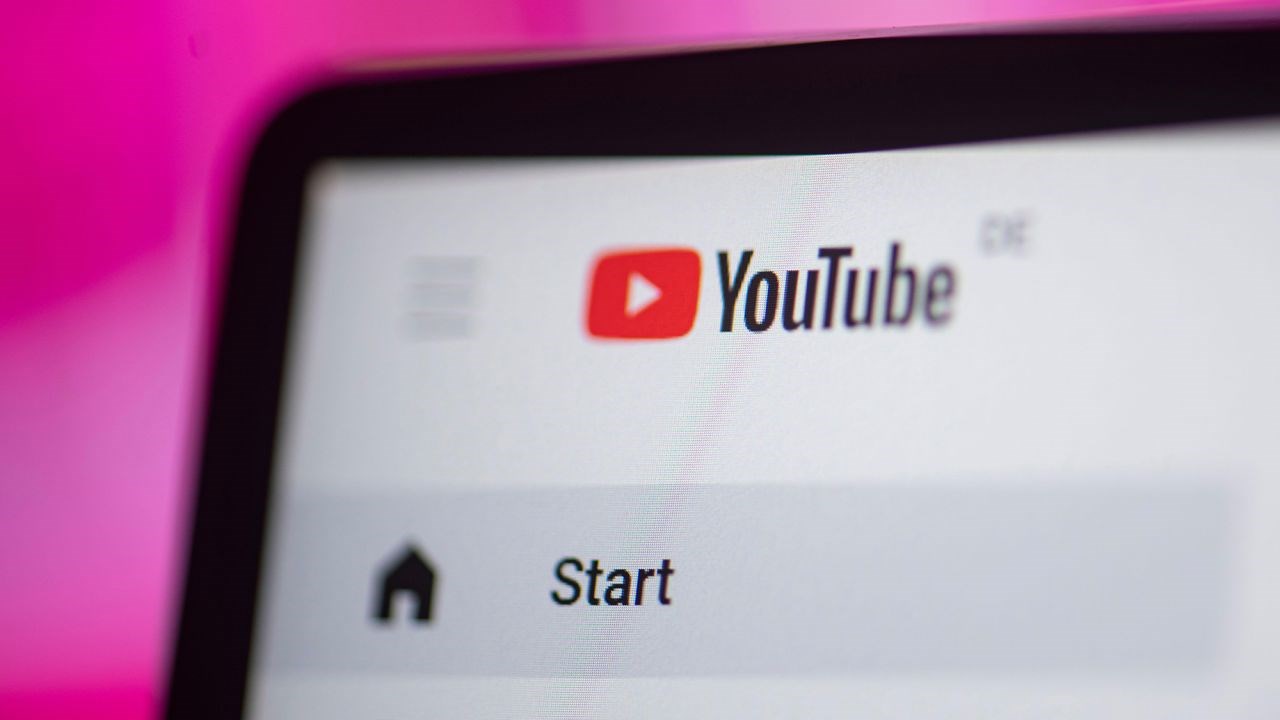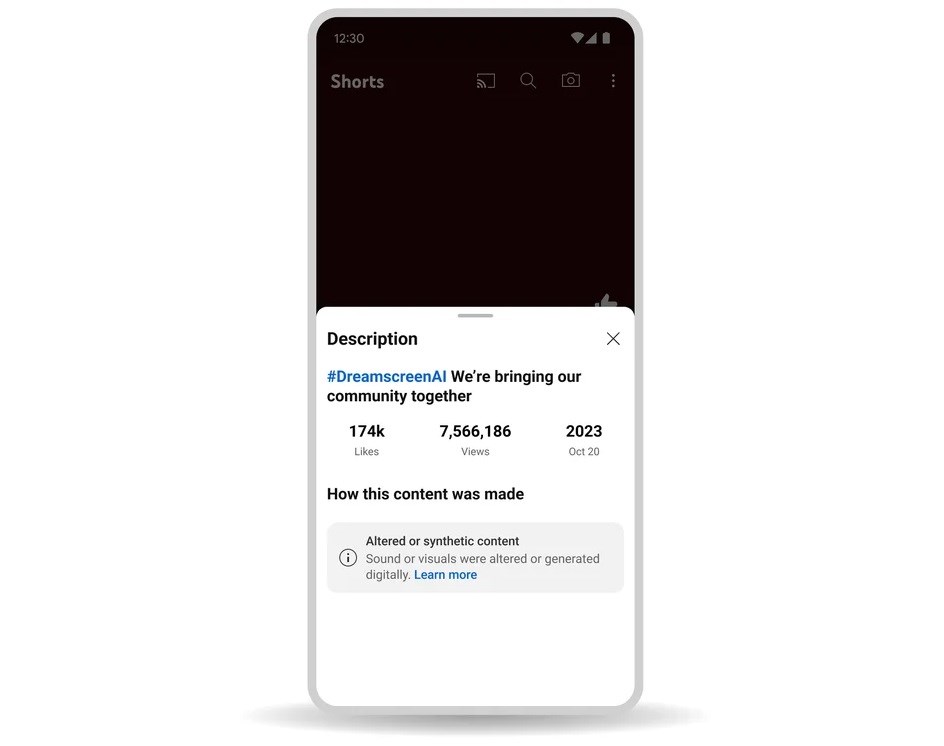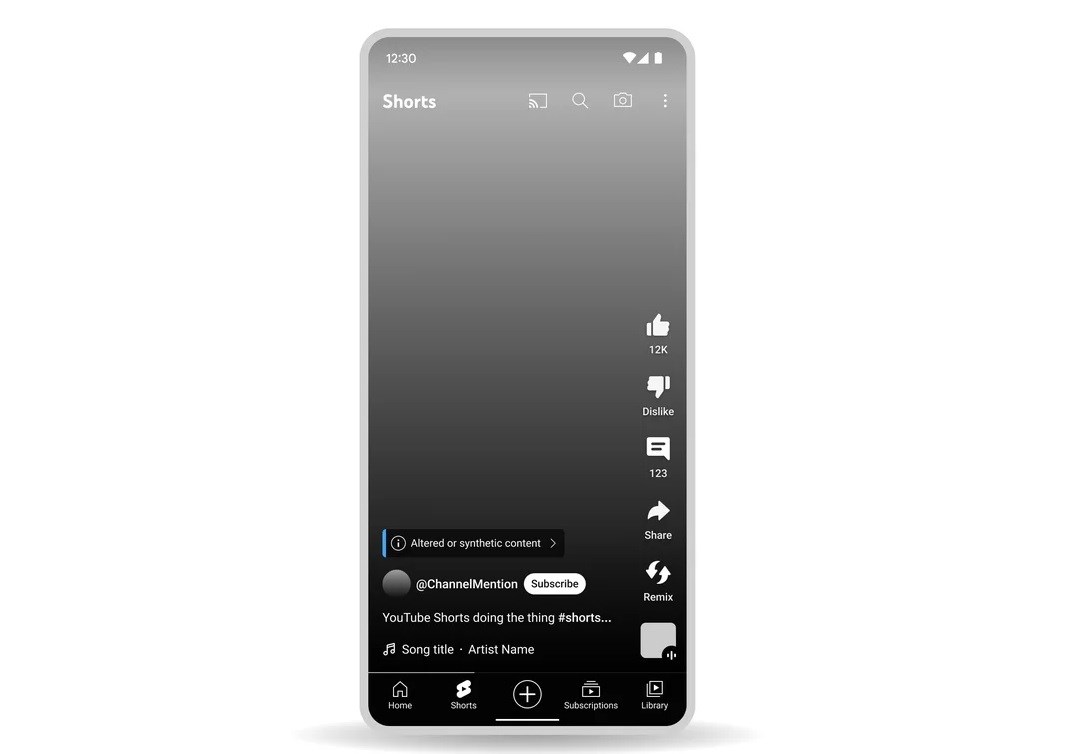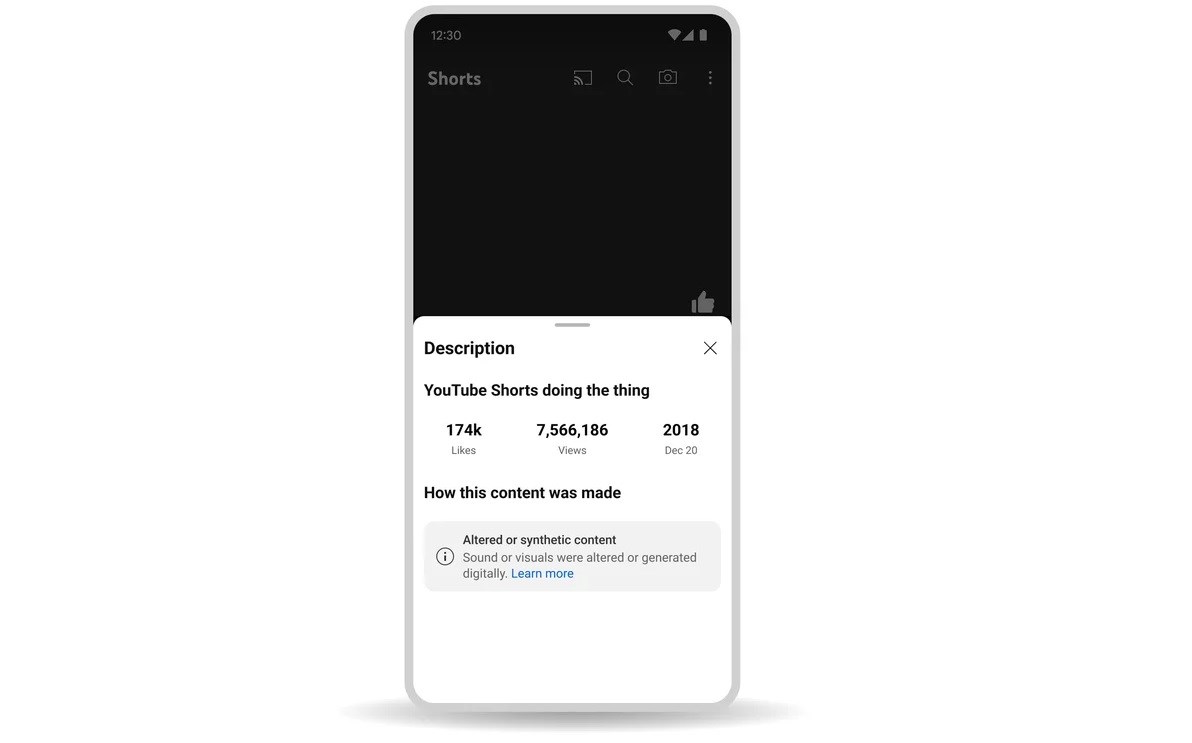 Google’s video platform YouTube will soon require video producers to disclose when they upload manipulated or synthetic content that appears realistic, including videos created using artificial intelligence tools. The policy update, which will take effect in the new year, will apply to videos that use generative AI tools to realistically depict events that never happened or show people saying or doing something they didn’t actually do.
Google’s video platform YouTube will soon require video producers to disclose when they upload manipulated or synthetic content that appears realistic, including videos created using artificial intelligence tools. The policy update, which will take effect in the new year, will apply to videos that use generative AI tools to realistically depict events that never happened or show people saying or doing something they didn’t actually do.YouTube puts its artificial intelligence policy into use
“This is especially important when content discusses sensitive topics like elections, ongoing conflicts and public health crises, or public officials,” Jennifer Flannery O’Connor and Emily Moxley, YouTube’s vice presidents of product management, wrote in a post on the company blog on Tuesday. said.
 However, YouTube says creators who repeatedly choose not to disclose when they post synthetic content may be subject to content removal, suspension from the program that generates ad revenue, or other penalties. To avoid this type of issue, creators will need to opt-in to YouTube’s new warning label in the video’s description panel if the content has been digitally manipulated or AI-generated.
However, YouTube says creators who repeatedly choose not to disclose when they post synthetic content may be subject to content removal, suspension from the program that generates ad revenue, or other penalties. To avoid this type of issue, creators will need to opt-in to YouTube’s new warning label in the video’s description panel if the content has been digitally manipulated or AI-generated.For certain types of content related to sensitive topics like elections, ongoing conflicts, and public health crises, YouTube will display a label more prominently in the video player itself. The company said it would work with creators to make sure they understand the new requirements before the policy goes into effect, and is developing its own tools to detect when the rules are being violated. YouTube also promises to automatically tag created content for creators using its own AI tools.
 However, it’s unclear how YouTube will know whether an untagged video is actually AI-generated. Although YouTube underlines that it has invested in tools to detect this type of content, ultimately there is no such detection tool available. The existing ones do not have a good record either.
However, it’s unclear how YouTube will know whether an untagged video is actually AI-generated. Although YouTube underlines that it has invested in tools to detect this type of content, ultimately there is no such detection tool available. The existing ones do not have a good record either.Those exposed to deepfake can have the content removed
 But things get a little more interesting. YouTube will allow people to request the removal of videos that “simulate an identifiable person, including their face or voice,” using its existing privacy request form. So, if you encounter a deepfake video, you will now have an option to remove the video. While this is nice, there is a big “but” thing. YouTube says it will “consider a variety of factors when evaluating these requests, including whether the content is parody or satire and whether the person is a public official or “public figure.”
But things get a little more interesting. YouTube will allow people to request the removal of videos that “simulate an identifiable person, including their face or voice,” using its existing privacy request form. So, if you encounter a deepfake video, you will now have an option to remove the video. While this is nice, there is a big “but” thing. YouTube says it will “consider a variety of factors when evaluating these requests, including whether the content is parody or satire and whether the person is a public official or “public figure.”Although there is no definition of what constitutes parody or satire, YouTube says it will explain the situation with examples when the policy rolls out next year.
There is also the other side of the coin in YouTube’s artificial intelligence policy, that is, its business partners. When it comes to AI-generated music content for partners that “imitates an artist’s unique singing or rapping voice,” the content will be removed regardless of things like parody and satire. So, if you are going to have Bülent Ersoy sing Adele’s song “Someone Like You”, remember that the video will be removed if requested by the rights owner.
Of course, such measures are also difficult for YouTube and, frankly, Google is forced to set its own rules. After all, there is no law prohibiting training an artificial intelligence system that sings like Taylor Swift. YouTube, on the other hand, is deeply tied to the music industry. For this reason, the “AI cover” incident will be removed from the platform in the near future.